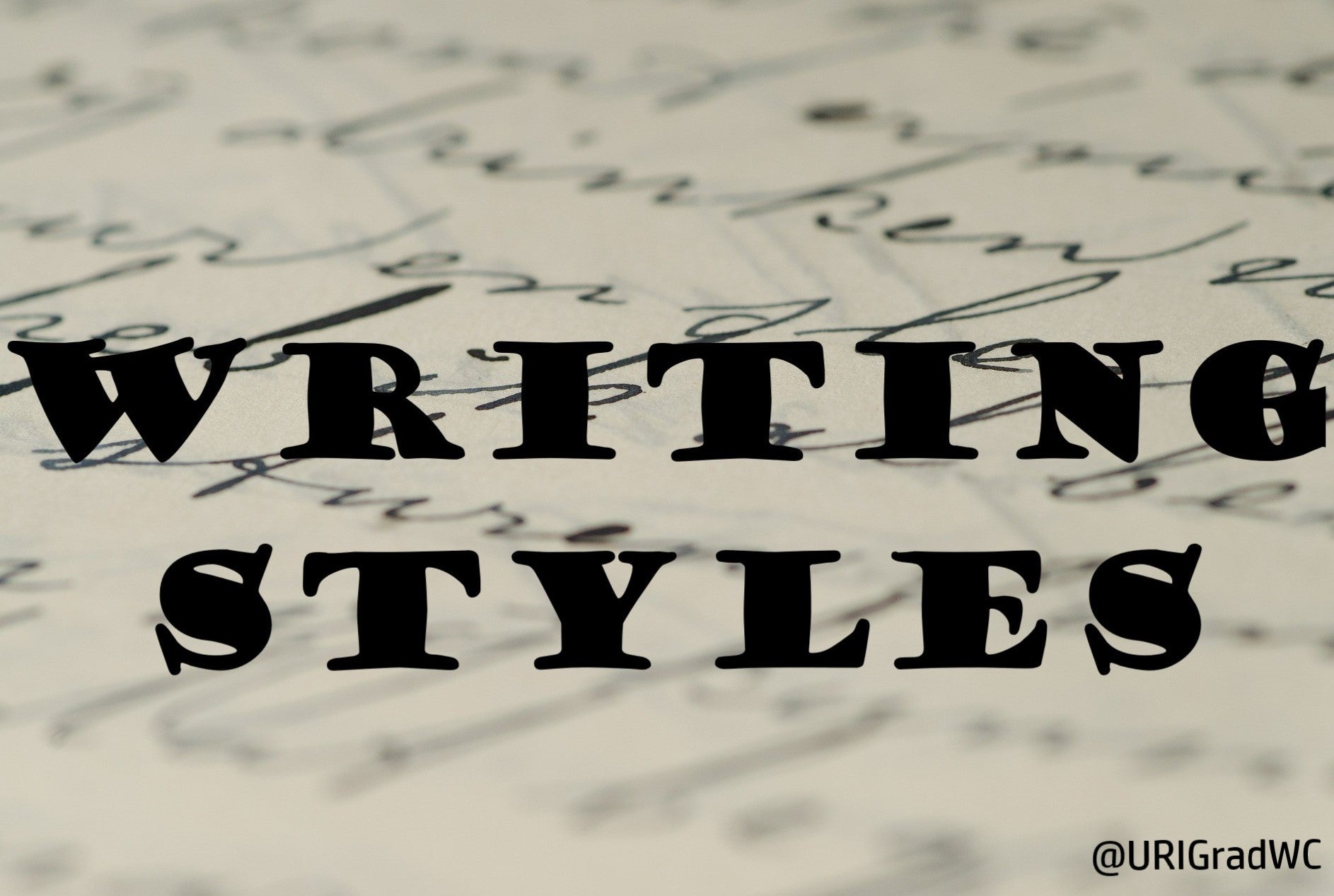Your audience and writing purpose will determine your writing style. The four main types of writing styles are persuasive, narrative, expository, and descriptive. In this blog post, we’ll briefly explore the defining features of these four writing styles. For more help using these writing styles, schedule an appointment at the GWC!
Persuasive: For this writing style, the writer is trying to convince the reader of the validity of a certain position or argument. Persuasive writing includes the writers’ opinions, and provides justifications and evidence to support their claims.
Examples: Letters of recommendation; cover letters; Op-Eds and Editorial newspaper articles; argumentative essays for academic papers
Narrative: Often seen in longer writing samples, the purpose of this writing style is to share information in the context of a story. Narratives should include characters, conflicts, and settings.
Examples: Short stories; novels; poetry; historical accounts
Expository: This type of writing is used to explain a concept and share information to a broader audience. Expository writing provides evidence, statistics, or results and focuses on the facts of a certain topic. This type is not meant to express opinions.
Examples: How-to articles; textbooks; news stories (not editorials or Op-Eds); business, technical, or scientific writing
Descriptive: This type of writing is used to depict imagery to create a clear picture in the mind of the reader. This method helps the readers become more connected to the writing by appealing to their senses. Descriptive writing employs literary techniques such as similes, metaphors, allegory, etc to engage the audience.
Examples: Poetry; fictional novels or plays; memoirs or first-hand accounts of events
*This post was adapted from “Types of Writing Styles” by Robin Jeffrey.
Blog post prepared by Danielle Perry, GWC tutor. Published January 27, 2020.

